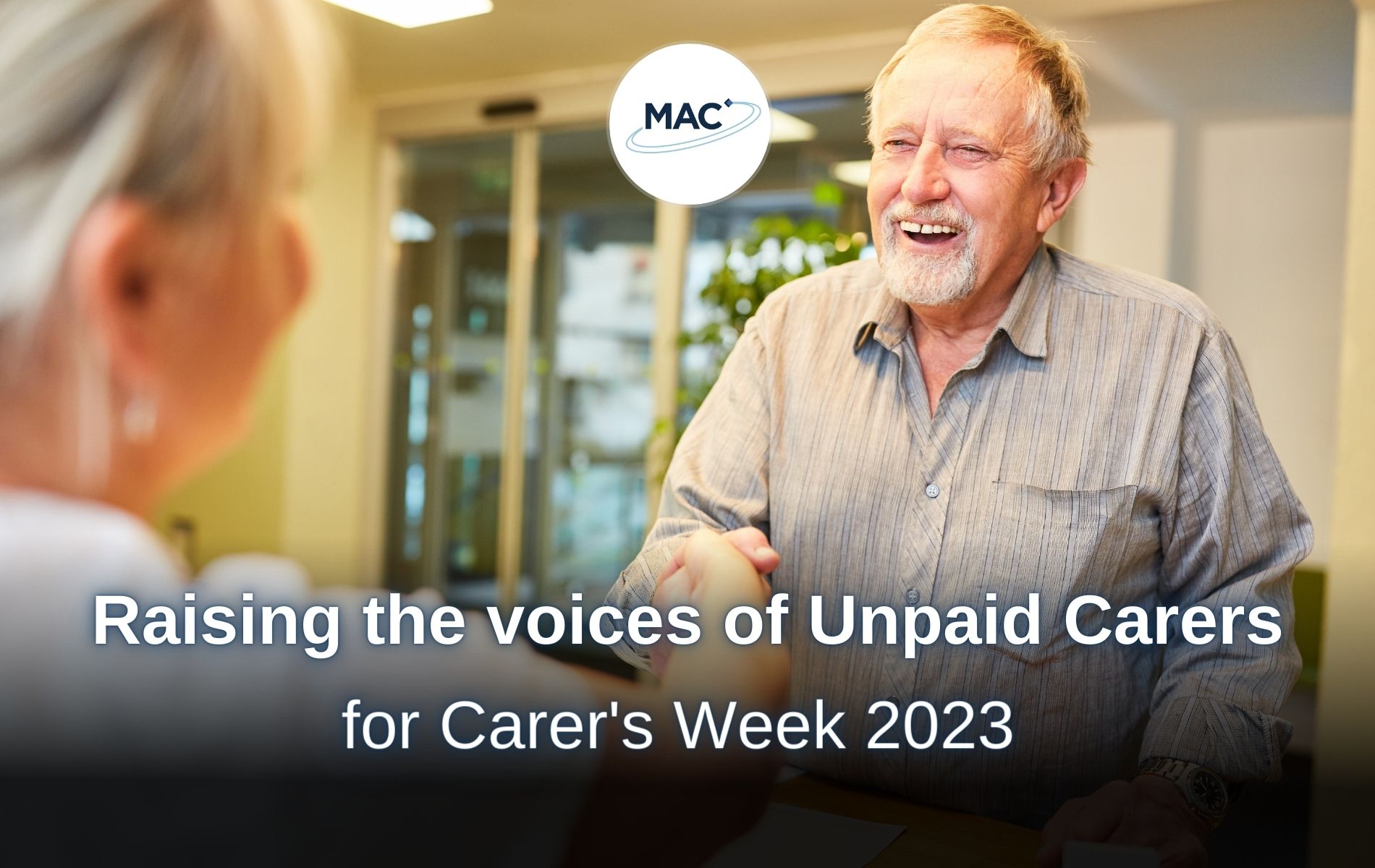Sue is a receptionist at MAC Clinical Research in South Staffordshire, and she is an unpaid carer.
Carer’s Week is celebrated from the 5th-11th June this year and we want to use this opportunity to highlight the vital work of carers.
The Carers Trust defines unpaid carers as “anyone who cares, unpaid, for a friend or family member who due to illness, disability, a mental health problem or an addiction cannot cope without their support.” This care can take up to a few hours each week or it could be as much as 24 hours a day, seven days a week, round-the-clock care.
The charity also estimates that there are at least seven million carers in the UK – one in every 10 people.
The support provided by an unpaid carer is different for each person but can include:
- Assisting in washing and dressing the person and other personal care
- Covering their housework, food shopping, and helping with medication
- Taking them to and from hospital and GP appointments
- Providing emotional support and company
Sue has been a carer for her 95-year-old mother for around three years now. She says some of the main challenges that come with being a carer are: “Time, patience, looking after two homes and two gardens, dealing with bills, worrying about mum still driving, cleaning, dog walking, and lifting the mobility scooter in and out of car boot. Feelings of guilt for not spending enough time with my mum. Feeling depressed.”
She wishes that more people knew about the strain that being a carer has on a person’s career and their relationships. According to Carer’s UK, on average, 600 people a day leave work to care – with over 500,000 people leaving work to provide unpaid care pre-pandemic.
Sue says: “I always think; my mum looked after me for half of my life, it’s my duty to now look after her.”
At MAC Clinical Research, we support the vital work of unpaid carers and their contributions to the healthcare system. As a receptionist, Sue has welcomed many carers into our clinics, who are attending to support a loved one who is taking part in a clinical trial. Our teams across all of our clinical sites offer support and signposting to other relevant services where appropriate including access to our own free memory clinic services.
When taking part in a clinical trial with MAC Clinical Research, you can request a chaperone so that a loved one or carer can be present for help and support during clinic visits. We can also provide transport for all clinic visits.
To find out more about our current clinical trials, please visit our current trials webpage.




